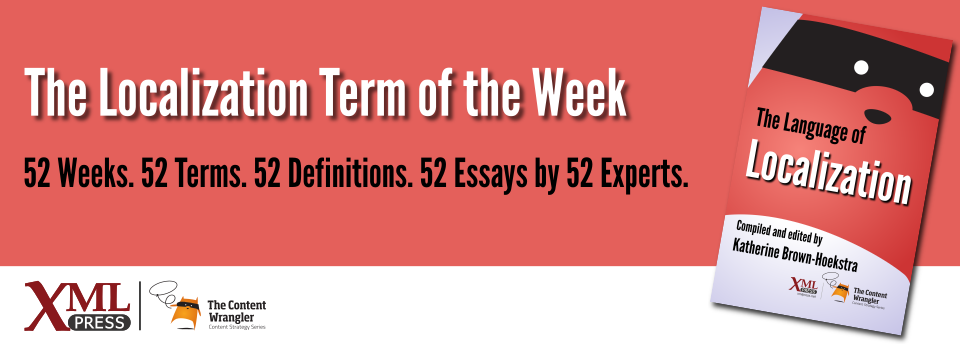What is it?
Leverage means re-using (parts of) a given text, both in content creation and content localization.
Why is it important?
The main goal for all localized content should be to achieve the highest quality, in the shortest time, at the lowest cost. Leverage can help make content more consistent. This increases the quality and makes localization efforts more cost-efficient.
Why does a technical communicator need to know this?
Leverage allows us to produce more consistent, higher quality content, while at the same time working faster and saving costs.
Segmenting the text as granularly as possible increases the opportunities for reuse. Usually, localization specialists keep track of the text segments in a Translation Memory (TM), and match it with a target language. When translators use a Computer Aided Translation (CAT) tool, it enables them to store the TM and make sure they only translate a particular text segment once. When they find a similar – but not identical – text segment, the tool flags it as a fuzzy match and displays it in the CAT tool so the translator can evaluate the match.
On the content development side, the term leverage is often referred to as reuse, which means that the same or similar content is used in multiple places in the source content. This type of leverage also improves consistency in the source, as well as the target.
The benefit of leverage is seen in consistent translations and a decrease in cost for similar text. Often, the client views leverage as positive (we can save money), while the localization vendor views it as negative (I am getting paid for only a fraction of the work I do).
All stakeholders in the localization industry should embrace leverage: content developers, translators, localization project managers (vendor- and client-side), localization managers, and quality assurance specialists[Ray 2015][Batova 2015].
References
- [Ray 2015] Lessons from Travel Companies for Supporting Global CX: Ray, Rebecca and Hélène Pielmeier. (2015). Common Sense Advisory report on how leveraging multilingual content benefits the travel industry. Available for purchase.
- [Batova 2015] Multilingual Quality and Topic-based Authoring: A Survey of Common Practice: Batova, Tatiana. (2015) CIDM article that discusses survey findings for how topic-based authoring improves multilingual quality.

